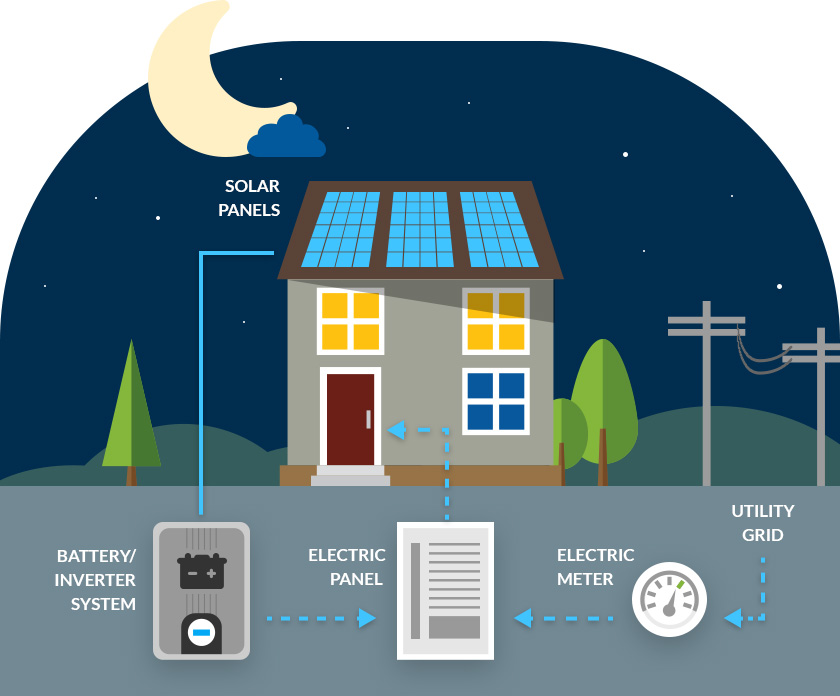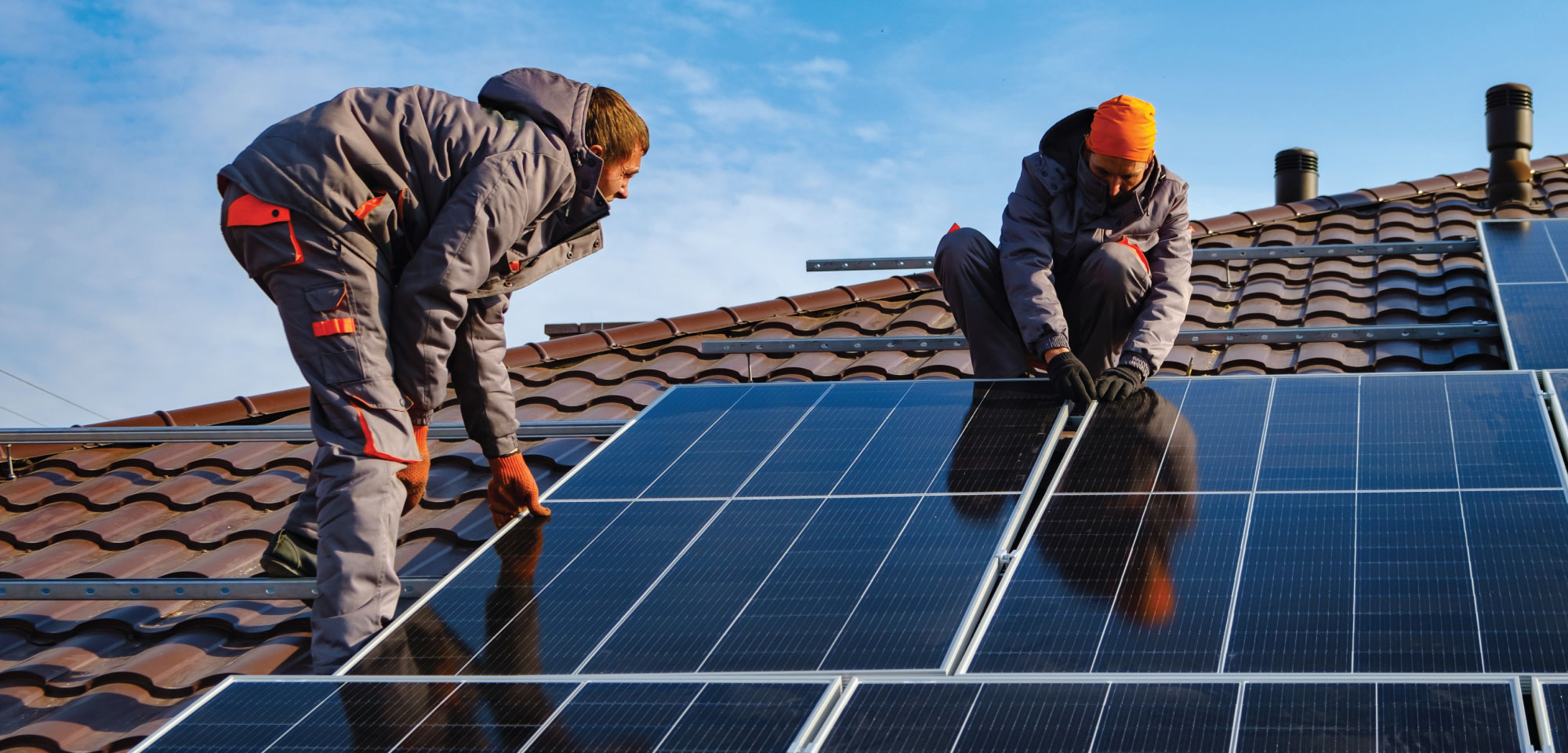Some Ideas on Residential Solar Panels Virginia You Need To Know
Some Ideas on Residential Solar Panels Virginia You Need To Know
Blog Article
Solar System Contractor Virginia: Lumina Solar Focuses On Offering Advanced Photovoltaic Solutions For Homes And Companies
History and Establishing
Have you ever questioned how a photovoltaic panel business springs from a simple trigger of motivation into a powerhouse of renewable energy? It typically begins with a vision-- one fueled by a mix of innovation, decision, and a pinch of serendipity. The journey of lots of solar companies mirrors the advancement of the technology itself: from large, ineffective panels to streamlined, high-efficiency marvels utilizing the sun's bounty.
The Early Days
In the late 20th century, when solar power was still a specific niche concept, leaders planted seeds for what would become a global motion. Envision a little workshop filled with curious engineers, tirelessly explore photovoltaic cells. Their passion was palpable, frequently driven by a desire to fight climate modification and decrease dependence on nonrenewable fuel sources.
One such anecdote is about a creator who, inspired by an outdoor camping journey, realized that even in remote locations, the sun could power important gadgets. This simple observation stimulated a company's objective to equalize access to tidy energy.
Founding Concepts

- Innovation: Continuously pressing the borders of solar technology to enhance effectiveness and toughness.
- Sustainability: Devoting to eco-friendly manufacturing and reducing carbon footprints.
- Availability: Making renewable resource solutions cost effective and useful for everyday users.
Milestones in Growth
| Year | Key Event |
|---|---|
| 1985 | Company established in a little garage, concentrating on research study and development. |
| 1995 | First industrial photovoltaic panel product released, getting regional attention. |
| 2005 | Broadened to global markets, embracing international renewable resource objectives. |
| 2015 | Introduced innovative solar panel technology with enhanced energy conversion. |
Isn't it interesting how these incremental steps, typically neglected, form the energy landscape today? The photovoltaic panel business story is not practically technology; it has to do with a ruthless quest for a brighter, cleaner future.

Innovations in Solar Panel Technologies
Ever noticed how some solar panels gleam brighter and last longer? It's not magic; it's the science of photovoltaic efficiency. Modern solar panel companies invest greatly in innovations like bifacial cells, which capture sunlight from both sides, enhancing energy harvest without expanding roofing system area. Have you ever questioned why some panels perform much better on cloudy days? That's due to advances in thin-film solar technology, which prospers under diffused light conditions.
Product Variations Customized to Special Needs
One size never ever fits all. Solar panel service providers now offer:
- Monocrystalline panels for optimum efficiency and streamlined aesthetic appeals, suitable for space-constrained rooftops.
- Polycrystalline panels, which provide an economical option without sacrificing too much output.
- Building-integrated photovoltaics (BIPV), combining solar tech perfectly into architectural components like windows and facades.
Choosing the ideal item isn't practically upfront cost; it's about matching your environment, energy objectives, and long-term cost savings. For instance, homes shaded by trees require panels that excel in low-light situations, something many ignore until energy expenses climb suddenly.
Technical Tips for Ideal Choice
- Examine the temperature level coefficient-- lower values indicate panels lose less effectiveness on hot days.
- Try to find panels with boosted anti-reflective coverings to optimize light absorption.
- Consider the panel's warranty not just for flaws, but for guaranteed power output over decades.
- Don't undervalue the significance of the inverter innovation coupled with the panels; it can make or break your system's performance.
Beyond Panels: Emerging Patterns
Imagine solar panels that change their angle instantly to chase after the sun-- tracking systems are becoming more accessible, increasing yield significantly. Or solar tiles that blend undetectably into your roofline, transforming your home into a quiet, self-sufficient power generator. These developments are improving what a solar panel company offers-- not simply items, but incorporated energy solutions.
Market Existence and Global Operations
Ever question why some photovoltaic panel companies seem to sprout up in every corner of the check here globe while others barely make a ripple? The distinction lies not simply in technology however in mastering the art of browsing diverse markets. Expanding worldwide is like planting seeds in different climates-- you must understand each environment's special conditions to prosper.
Take, for instance, the elaborate dance of logistics and supply chain management. Shipping panels midway across the world isn't almost distance; it has to do with timing, customs, tariffs, and adjusting to local need fluctuations. A company with robust international operations expects these variables, guaranteeing panels get here on schedule without pumping up costs. This insight is no little accomplishment and frequently separates industry leaders from followers.
Secret Strategies for Expanding Market Existence
- Localized production: Establishing production centers near target audience minimizes shipping hold-ups and import intricacies.
- Strategic collaborations: Teaming up with regional companies accelerates market penetration and constructs trust.
- Adaptive item style: Customizing solar panel tech to weather, sun strength, and facilities subtleties improves efficiency and acceptance.
What about the human factor? Photovoltaic panel business operating worldwide need to reconcile cultural distinctions and regulative nuances without forgeting their core objective. What works in a sun-drenched desert may falter in a damp seaside area. Sometimes, the most innovative service is just listening-- absorbing local insights to fine-tune innovation and technique.
Specialists frequently advise a phased rollout rather than a shotgun growth. Why risk overextension when determined development builds sustainable momentum? Scaling carefully means balancing ambition with operational durability - Solar Companies in Virginia. In the race for sustainable energy dominance, persistence can be as valuable as speed.
Environmental Impact and Sustainability Practices
When photovoltaic panels initially emerged, lots of presumed they carried absolutely no ecological baggage. The reality is more nuanced. The production of solar batteries involves unusual earth metals and energy-intensive processes, which can leave a large carbon footprint before the panels even reach roofs. The true ecological expense depends greatly on the sustainability practices used by the photovoltaic panel company throughout the lifecycle of their items.
How frequently do we stop briefly to consider what happens to photovoltaic panels at the end of their helpful life? Unlike batteries or electronic devices, photovoltaic panels can last 25-30 years, but disposal and recycling pathways stay underdeveloped in many areas. A company committed to minimizing ecological harm will have a robust plan for recycling photovoltaic materials, restoring important silicon, glass, and metals to prevent landfill accumulation.
Key Sustainability Techniques
- Utilizing low-impact production techniques that minimize water and energy usage.
- Carrying out closed-loop systems to recycle production waste back into brand-new panels.
- Engaging in transparent supply chain audits to guarantee ethical sourcing of raw products.
- Creating panels for much easier disassembly to aid future recycling efforts.
It deserves keeping in mind that some solar companies have originated innovative approaches, such as incorporating biodegradable elements or utilizing less hazardous chemicals during fabrication. This not only minimizes ecological pressure but likewise sets a precedent for the industry. The question remains: can the solar market genuinely pivot towards a circular economy design without compromising efficiency or affordability?
Professional Tips for Evaluating Sustainability
- Inquire about the business's dedication to carbon-neutral production and whether they balance out emissions.
- Examine if they partner with certified recycling facilities dedicated to photovoltaic panel waste.
- Look for openness reports detailing environmental effects and sustainability goals.
- Consider the longevity and service warranty of panels as an indirect step of resource efficiency.
In the end, selecting solar power needs to imply more than just slashing electrical power expenses; it's about supporting a future where energy is gathered properly and waste is thoughtfully handled. Solar panel companies that embrace this viewpoint not only brighten homes however also cast a brighter light on sustainable innovation.
Report this page